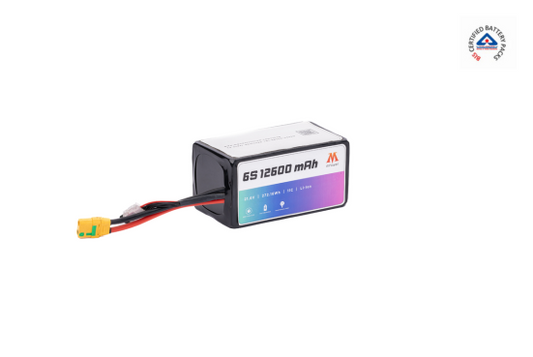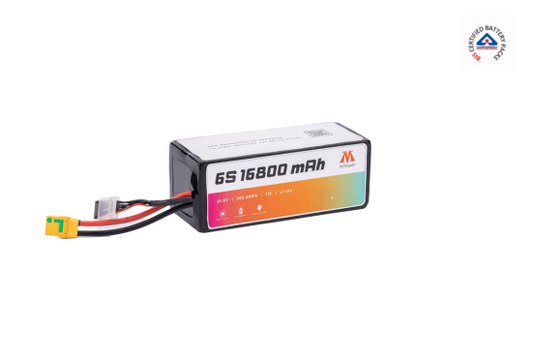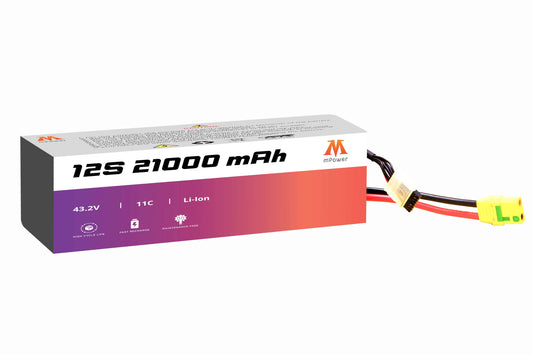In recent years, drones have revolutionized how farmers approach agricultural activities, bringing a new era of efficiency and precision. Drones have become indispensable tools for modern farmers, offering a range of benefits that enhance crop management and yield optimization. The lithium-ion batteries have become the go-to power source for drones due to their high energy density and rechargeable capabilities. However, like all batteries, they have a limited lifespan. Understanding the factors that affect lithium-ion battery life is essential for drone enthusiasts and manufacturers alike.
In this blog post, we will explore five crucial factors that influence the lifespan of lithium-ion drone batteries.
Different Factors Affecting the Lithium Ion Battery Life
Lithium-ion batteries have become the powerhouse of modern technology, fueling everything from drones to electric vehicles. So, here in this section, we will discuss various 5 Factors That Affect the Drone Battery Lithium Ion Life:-
Charge Cycles
Lithium-ion batteries have a finite number of charge cycles, which refer to the process of discharging and recharging the battery. Each complete charge cycle leads to a gradual deterioration of the battery's capacity. Drone users should know that a charge cycle does not necessarily deplete the battery from 100% to 0% and back to 100%.
It can be, for example, using 50% of the battery's capacity twice, constituting one complete charge cycle. Once a lithium-ion battery reaches the end of its charge cycle life, it will retain significantly less capacity than when it was new.
Temperature
Temperature plays a vital role in the performance and lifespan of lithium-ion batteries. High temperatures can accelerate the chemical reactions within the battery, leading to faster degradation. On the other hand, extremely low temperatures can increase internal resistance, making it difficult for the battery to deliver power effectively. For drone enthusiasts, it is crucial to avoid exposing their batteries to extreme temperatures and store them in a cool, dry place when not in use.
Storage Conditions
How you store your lithium-ion drone batteries can significantly impact their overall lifespan. If you plan to store your drone for an extended period, following proper storage guidelines is essential. Ideally, the battery should be charged to around 40-60% before storage in a cool and dry environment. Storing the battery fully charged or depleted for extended periods can lead to capacity loss and potentially render the battery useless.
Quality of the Battery
The quality of the lithium-ion battery itself can significantly influence its lifespan. As the demand for drone batteries has increased, so has the number of lithium drone battery manufacturers. Unfortunately, not all manufacturers maintain the same level of quality. Opting for batteries from reputable and reliable manufacturers can ensure that you receive a product made with high-quality materials and manufacturing processes, leading to a longer-lasting battery.
Usage Patterns
How you use your drone and battery can also affect the battery's life. If you consistently drain the battery to its lowest capacity or push it to the extreme limits of its performance, it may lead to premature degradation. It's best to avoid over-discharging the battery and maintain a moderate and consistent usage pattern. Additionally, avoid subjecting the battery to heavy mechanical stress or physical impacts that could damage the cells.
What Makes mPower the Leading Lithium Drone Battery Manufacturer?
mPower has earned its reputation as a leading Lithium Drone battery manufacturer due to its extensive experience and expertise in battery technology. With a legacy spanning decades in the battery industry, mPower has mastered manufacturing high-quality, reliable Drone Battery Lithium Ion. As drones demand lightweight yet high-performing batteries, mPower's commitment to research and innovation has allowed them to develop cutting-edge lithium-ion batteries tailored to meet the unique requirements of the drones. Their batteries boast exceptional energy density, extended flight times, and reliable power delivery, making mPower a trusted choice for farmers and professionals seeking top-tier performance and longevity in their battery solutions.
Wrapping Up
Understanding the factors that influence the lifespan of lithium-ion drone batteries is essential for maximizing their longevity and performance. Being mindful of charge cycles, temperature, storage conditions, the battery's quality, and usage patterns can significantly impact how long your drone batteries will last. As the technology behind lithium-ion batteries continues to advance, we can expect even better performance and longer lifespans, making drones even more versatile and reliable for various applications.
Happy flying with mPower!












